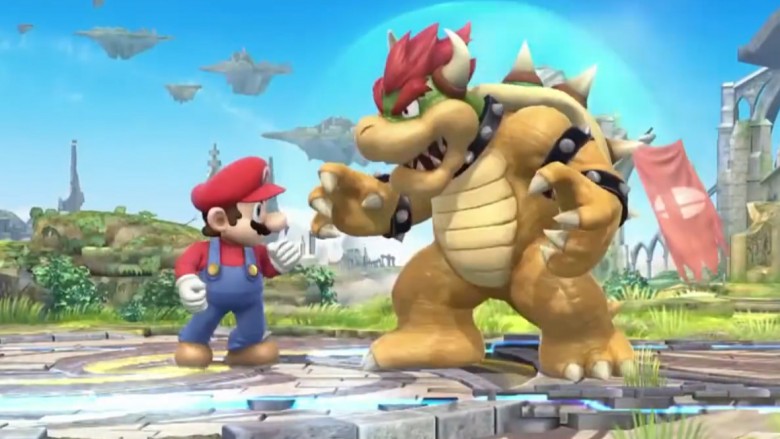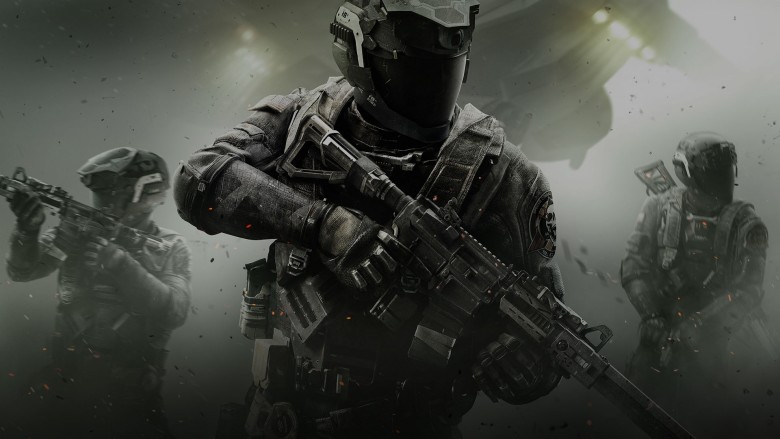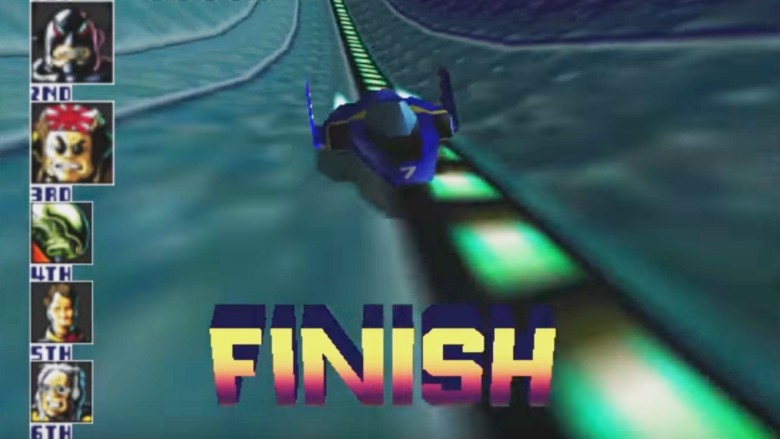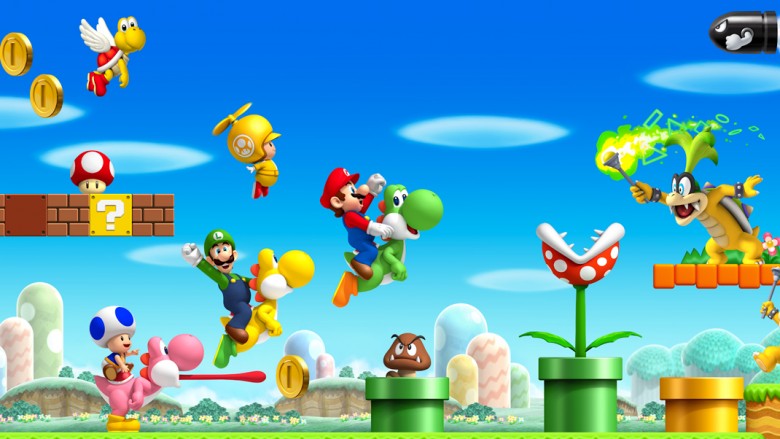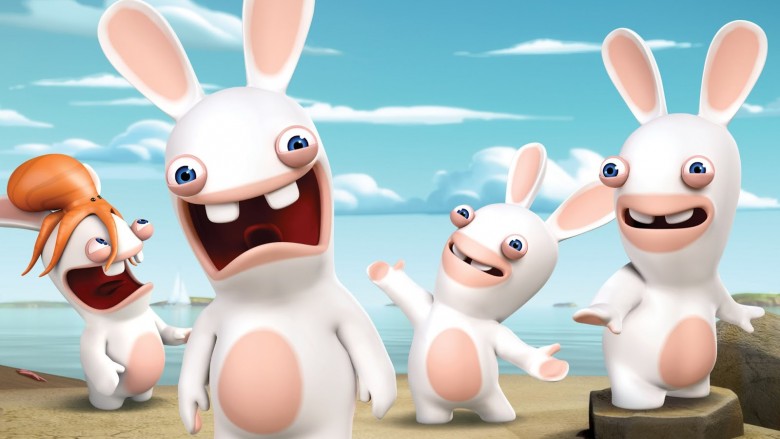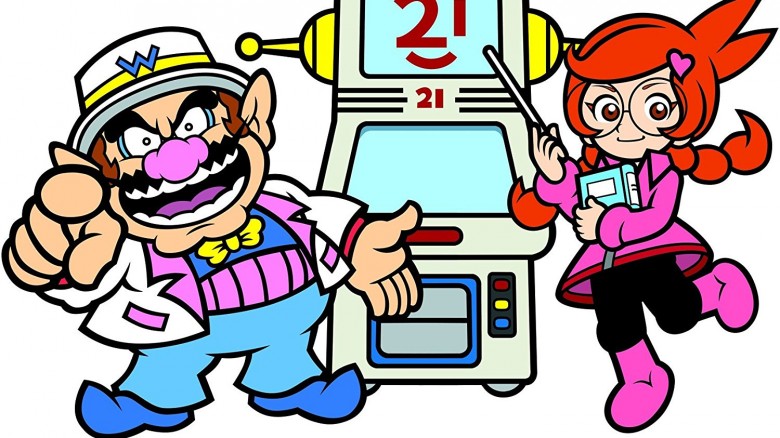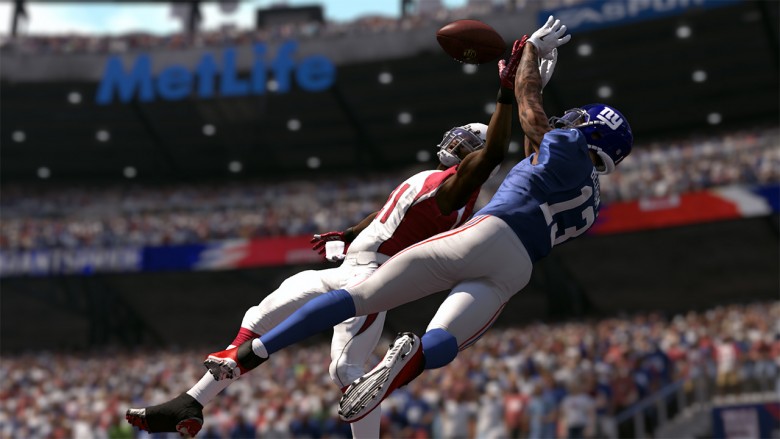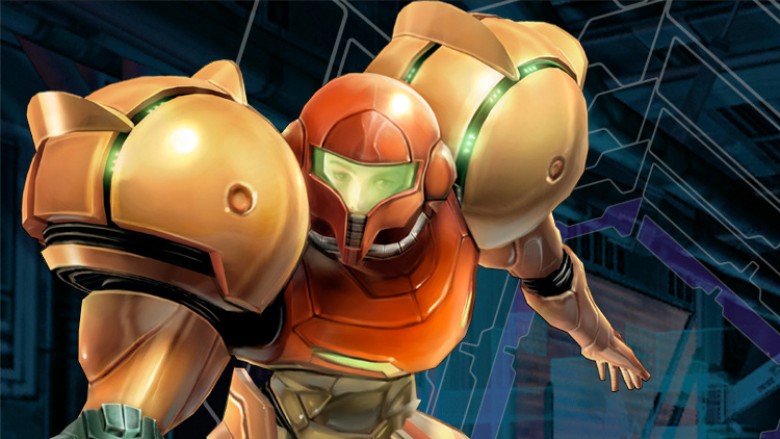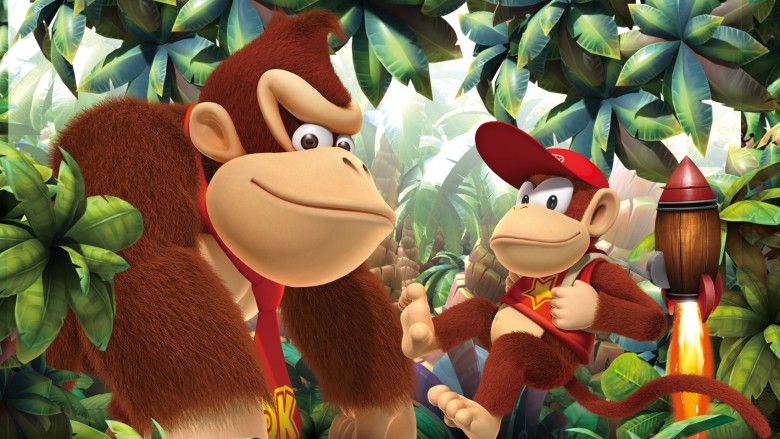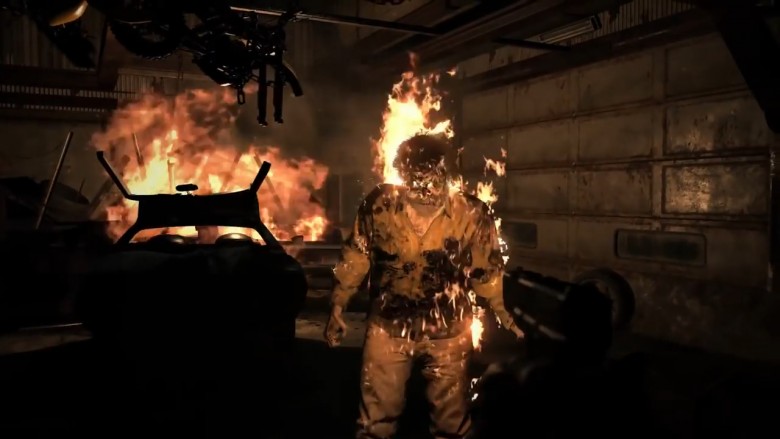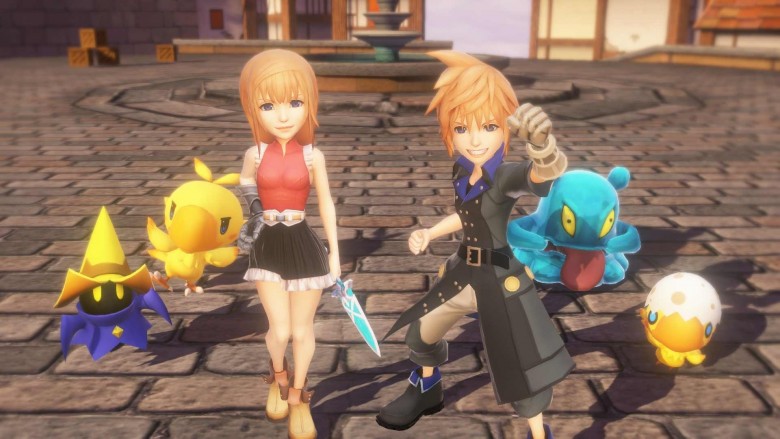Games Noticeably Missing From The Nintendo Switch Launch Lineup
A console's launch lineup doesn't necessarily make or break a system—other than Ridge Racer, the PlayStation's earliest games were mostly underwhelming ports of pre-existing games, and yet that system did just fine—but a solid set of games can certainly give a console a leg up. Look at what happened with the Nintendo Wii. Wii Sports, which used motion controls to create addictive and accessible simulations of popular sports like tennis and bowling, single-handedly captured the imagination of both dedicated fans and people who had never played a video game before, and propelled the Wii to record-breaking sales.
Coming off four years of disappointing Wii U sales, Nintendo desperately needs a hit. While The Legend of Zelda: Breath of the Wild is about as close as the game industry gets to a sure-thing, it remains to be seen whether or not the Switch will get the strong start it needs without these time-proven titles by its side.
Super Smash Bros.
Switch owners who want to engage in virtual fisticuffs will be able to play ARMS, Nintendo's new spring-based boxing game, but they won't be able to duke it out using Nintendo's roster of existing characters any time soon. While the Wii U's Mario Kart 8 will be getting a Switch-exclusive "Deluxe" edition on April 28, a next-generation remake of the latest Super Smash Bros. game doesn't look like it's in the cards.
That's too bad. Mario Kart 8 Deluxe will beef up the already robust title with a small army of new characters, including King Boo, Dry Bones, and Splatoon's Inklings, a handful of new maps, and two new competitive modes called Balloon Battle (a throwback to the classic Mario Kart battle mode) and Bob-omb Blast. Super Smash Bros. for Wii U is already a massive game, but you'd be hard-pressed to find a fan who'd say no to that much extra content. Besides, if most Nintendo fans move to the Switch, Super Smash Bros.' Wii U multiplayer servers will likely become a barren wasteland sooner rather than later. A Switch-based remaster seems like the perfect way to keep the game's vibrant online community alive until the next edition arrives, especially given that the Switch won't support old Wii U games.
Call of Duty, Battlefield 1, and other modern first-person shooters
Nintendo hasn't enjoyed a steady stream of third-party support since the Super Nintendo days. Reportedly, Nintendo's decision to make the Nintendo 64 a cartridge-based system resulted in a mass exodus, as developers preferred to work with the Sony PlayStation's bigger and less expensive CD-ROMs. Nintendo never quite recovered. While the Wii's massive install base led to a number of third-party titles, most of those were budget titles or quick cash-ins intended to capitalize on the Wii's unexpected popularity, and the lack of outside support is often cited as a key component in the Wii U's disappointing numbers.
Putting a popular M-rated title like Call of Duty: Infinite Warfare, Battlefield 1, or any of 2016's other best-selling shooters on the Switch's launch list would've been a great way for Nintendo to address fears that the Switch is going to the suffer the same fate as its underperforming predecessor, but the Switch's early lineup lacks many of modern gaming's most popular titles. Sure, Skyrim is great, but it's also six years old—and so far, most other third-party games seem to be experimental new games like Square Enix's Project: Octopath Traveler or Suda51's untitled No More Heroes spinoff. Those games could be great, but seeing some well-established franchises return to Nintendo consoles would go a long way toward calming fans' nerves.
F-Zero
Even though the series hasn't had a new entry since 2004, F-Zero is still considered one of Nintendo's core franchises. The original was a Super Nintendo launch title that showcased for the SNES' groundbreaking "Mode 7" 3-D effects, while the series' protagonist, Captain Falcon, is a Super Smash Bros. mainstay. On January 12, 2017—the same day as Nintendo's big Switch press event—F-Zero X, the Nintendo 64's installment in the classic racing franchise, hit the Wii U's Nintendo's virtual console in North America, leading many to speculate that F-Zero would be making its triumphant return as part of the Switch's worldwide debut.
Unfortunately, the good Captain and his crew are still stuck in limbo, and there doesn't seem to be much of a chance that they'll return anytime soon. In 2015, Nintendo's creative mastermind Shigeru Miyamoto said that Nintendo would only make a new F-Zero title if the game could be paired with a "a new type of controller interface ... that's particularly suited for F-Zero." While the Switch, which features a pair of versatile controllers called Joy-Cons, could fit that description, it looks like Nintendo fans will have to settle for FAST RMX to fill their futuristic racing needs.
New Super Mario Bros.
Some might say that Nintendo's mobile hit Super Mario Run made 2-D Mario cool again, but honestly, he's been back for well over a decade. In 2006, Nintendo released New Super Mario Bros. on the DS. The first side-scroller headlined by Mario since 1992, New Super Mario Bros. mixed classic Mario-style challenges with modern 3-D graphics, and fans ate it up. New Super Mario Bros. sold almost 31 million units—more than any other DS game—and kicked off a franchise that's come to every subsequent Nintendo platform.
Until the Switch, anyway. While Super Mario Odyssey, a 3-D sandbox-based platformer in the style of Super Mario 64 and Super Mario Sunshine, was one of the highlights of Nintendo's Switch presentation, Mario's retro-inspired offering wasn't anywhere to be seen. That's surprising, given that New Super Mario Bros. provided the template for Super Mario Run, Nintendo's first big foray into the mobile gaming market, and is a big part of the Super Mario Maker (also a noticeable absence).
Rayman Raving Rabbids
Non-Nintendo developers often have trouble making headway on Nintendo's systems, but not Ubisoft. When the Wii debuted in 2006, Rayman Raving Rabbids was right there with it, quietly launching a worldwide sensation of its own. While the first few Rabbids games feature Ubisoft's popular platforming character Rayman as the hero, everyone knew that the Rabbids—"vicious, but at the same time ... totally stupid" rabbits, according to creator Michel Ancel—were the real stars, and it wasn't long before Ubisoft's screaming rodents were headlining video games, television shows, and comic books of their own.
The Rabbids made an encore appearance for the Wii U's launch in Rabbids Land, but so far seem to be missing the Switch's run entirely. In part, that's probably because they're busy elsewhere. Four other Rabbids games hit consoles, portables, and mobile devices in the time between Rabbids Land's 2012 release and the Switch's big unveiling in 2017, and Ubisoft and Sony are busy trying to put together a Rabbids feature film. But there's another obstacle, too: Rayman, who was dropped from the Rabbids brand in 2009, has reclaimed his spot as Ubisoft's top hero, and his first Switch game—a remake of Rayman Legends—is entirely Rabbids-free.
WarioWare
WarioWare started as a goof. While developing a Japan-only Nintendo 64 game called Mario Artist: Polygon Studio, Nintendo's designers put together a series of quick, fun games that only took a few seconds to finish. The experiment proved successful enough that Nintendo decided to turn a collection of rapid-fire mini-games into a fully fledged title. Wario's influence came later. "Wario is always doing stupid things and is really idiotic, so we thought him and the rest of the characters would be best for the game," said producer Yoshi Sakamoto.
But after WarioWare, Inc.: Mega Microgame$! became an unexpected hit on the GameBoy Advance, WarioWare became something very, very different. Sure, the small, creative minigames remained, as did the game's quick pace and oddball sense of humor. However, WarioWare quickly grew into a way for Nintendo to show off its platforms' new technologies with the company's characteristic ease and sense of humor. WarioWare: Touched! played with the Nintendo DS' touch screen, WarioWare: Smooth Moves taught users how to use the Wii remote's motion controls, and WarioWare: Snapped! showed off the DSi's new camera.
Given how versatile the Switch's Joy-Con controllers are—and how much Nintendo wants you to know how versatile the Joy-Con controllers are—it's surprising that the Big N didn't roll out Wario and his gang to show them off. The mini-game collection 1-2 Switch might fill that void, but if so, it looks like it'll be doing so without WarioWare's bizarre sense of humor. (Cow-milking game aside, that is.)
Madden NFL
Modern Nintendo platforms aren't usually a great fit for serious sports fans, but with the Switch, that might be changing. The original Nintendo Switch reveal trailer devotes a huge chunk of time to a group of amateur basketball players who wrap up their game of hoops by sitting down with a Nintendo Switch and battling it out on a digital court, and just after the event, 2K Sports confirmed that NBA 2K18 will head the Switch's way in September. On the big stage in Tokyo, Electronic Arts showed off the Switch version of FIFA, which also appeared in a blink-and-you'll-miss-it round-up of upcoming third-party Switch titles.
Yet, while FIFA is huge overseas, in America it doesn't hold a candle to Madden NFL, which tops sales charts almost every year. If Nintendo is serious about making the Switch a contender in the sports arena, it'll need to bring Madden back to Nintendo platforms: the popular franchise hasn't made an appearance on a Nintendo system since the Wii U's edition of Madden NFL 13.
Metroid
It's been a long few years for Metroid fans. The last "true" Metroid game, Metroid Prime 3: Corruption, came out way back in 2007. The latest entry, a 3DS spinoff called Metroid Prime: Federation Force, leaves behind the series' core concepts—exploration and a sense of moody isolation—and lead character, Samus Aran, in favor of cooperative multiplayer and a Rocket League-like sports game called Blast Ball. After Metroid's 30th anniversary passed in 2016 with nary a peep from Nintendo, fans hoped the publisher would make some kind of announcement about the series' future.
They're still waiting. While Metroid Prime developer Retro Studios is hiring for a new, unknown project, sending the rumor mill into overdrive, unofficial sources claim that the studio is focusing on a brand new project of its own design. The only thing that anyone knows for sure is that, as of now, nothing about Metroid has been made available to the public, although Nintendo of America president Reggie Fils-Aime hints that something may be in the works: "Talk to me in a year," he told curious reporters.
Donkey Kong
Nintendo's big ape didn't appear on-screen at the Switch's Tokyo press event, but that doesn't mean his presence wasn't felt. As Mario roamed the eerily lifelike city streets in the Super Mario Odyssey trailer, keen-eyed fans noticed signs naming the metropolis New Donk City, as well as some street names and businesses named after Donkey Kong characters like Diddy and Dixie Kong.
Donkey Kong was a mainstay on Nintendo platforms in the '90s, when the development studio Rare reformed Mario's former nemesis and made him the hero of his own platforming series. Donkey Kong Country spawned two Super Nintendo sequels, a 3-D spinoff on the Nintendo 64, and a few handheld remakes, before disappearing thanks to Microsoft, which bought Rare in 2002. Later, Retro Studios picked up the reins and revived the Donkey Kong Country series on the Wii, Wii U, and 3DS, but if the studio is currently too busy for a new Metroid title, its designers probably don't have the time for more Donkey Kong, either.
Resident Evil 7
Resident Evil 7 and the Nintendo Switch would seem to go hand in hand. They release a little more than a month apart (Resident Evil 7 arrives January 24, 2017, while the Switch will make its way into players' hands on March 3, 2017) and both aim to reinvent their associated brands. Resident Evil 7 hopes to resuscitate the struggling franchise by scaling back on action, playing up the horror, and introducing a brand new perspective—first-person. Meanwhile, the Switch is poised to attract a normal gaming audience with games like The Legend of Zelda and Skyrim, while also reaching out to the casual fans it lost with the bulky and confusing Wii U.
It wouldn't be the first time that Resident Evil reinvented itself on a Nintendo platform, either. Resident Evil 4, which started the series' slide toward action-adventure, was a Nintendo GameCube exclusive—at least for a while. However, while Capcom is bringing an updated version of the classic fighting title Street Fighter 2 to the Switch, Resident Evil looks like it's currently confined to more powerful consoles like the Xbox One and PlayStation 4.
Final Fantasy
Some third-party developers look like they're tentatively experimenting with the Switch by releasing small, experimental titles or ports of older games. Square Enix, however, is all in. Dragon Quest X, the MMORPG based on Square Enix's second-biggest franchise, is getting a Switch edition, at least in Japan, while Project: Octopath Traveler is on the way from the same team that created the 3DS-exclusive Bravely titles.
So, where's the big guy? 2016 was a banner year for Square Enix's flagship series, Final Fantasy, with a handful of mobile titles and two major console releases, including the long-awaited Final Fantasy XV. Final Fantasy XV's director, Hajime Tabata, is on record as being a Switch fan, although it's possible that the Switch's hardware—which suffers in terms of raw power when compared the the PlayStation 4 and Xbox One—simply can't handle the massive game. Still, the Pokemon-like (and newbie-friendly) World of Final Fantasy seems like a perfect match for the Switch's target audience, and Square Enix has never shied away from making Final Fantasy spinoffs tailored specifically for Nintendo's quirky platforms.


